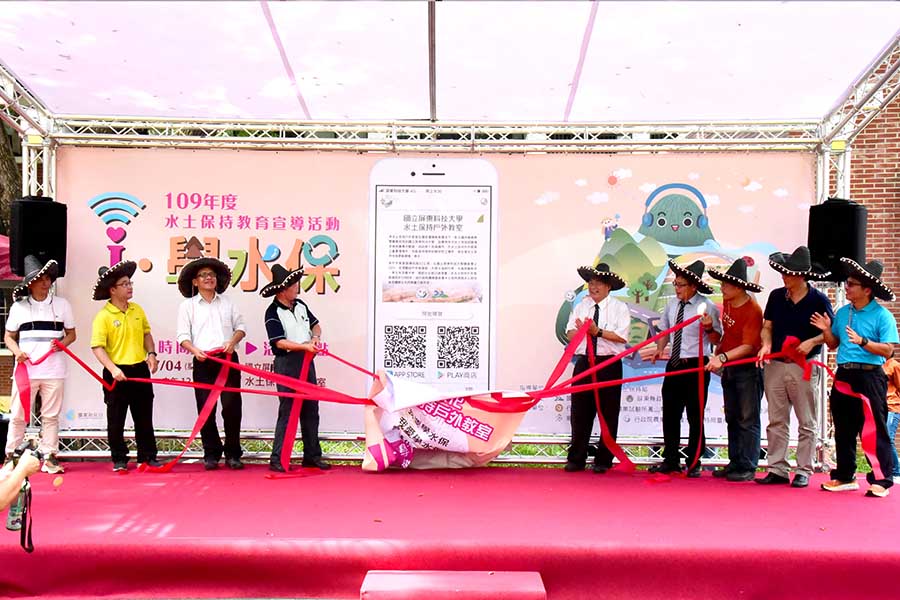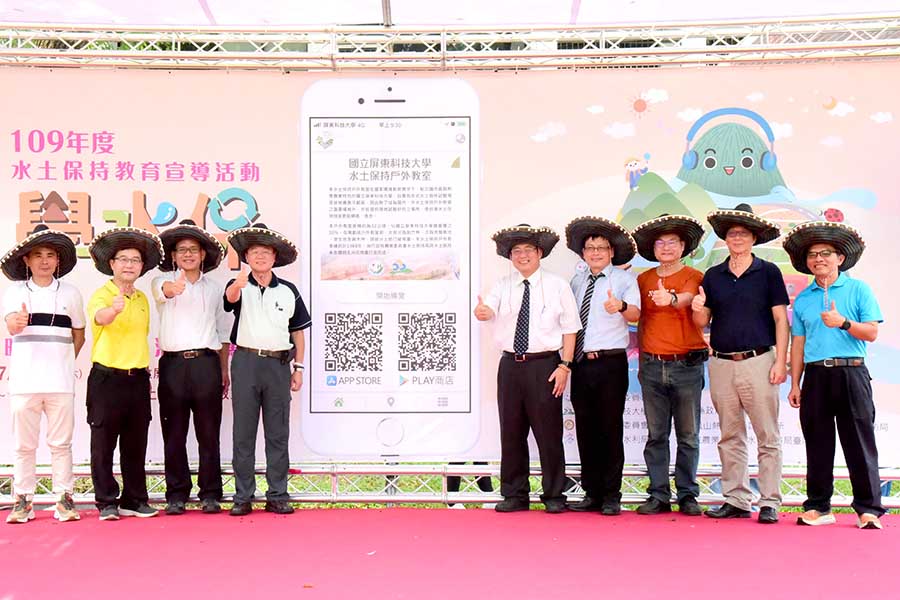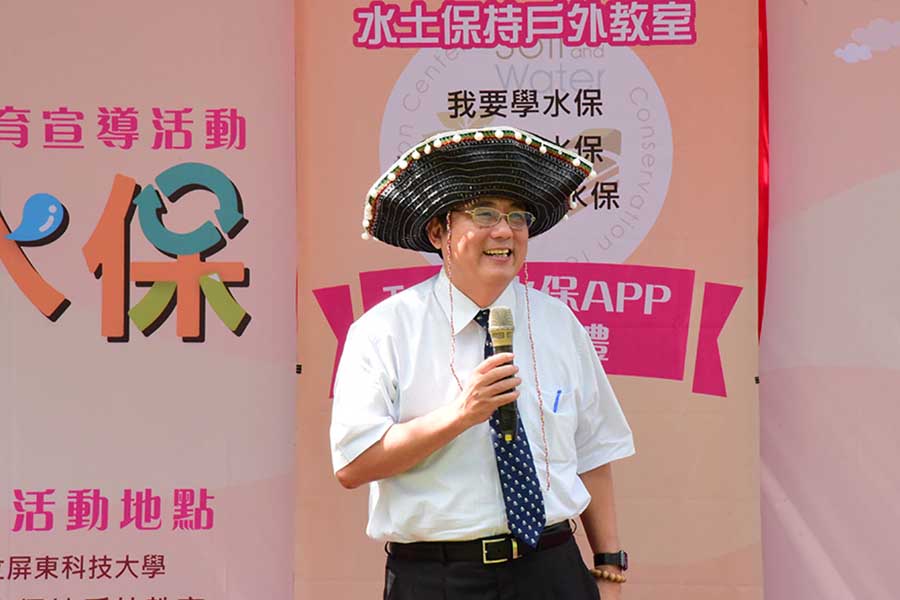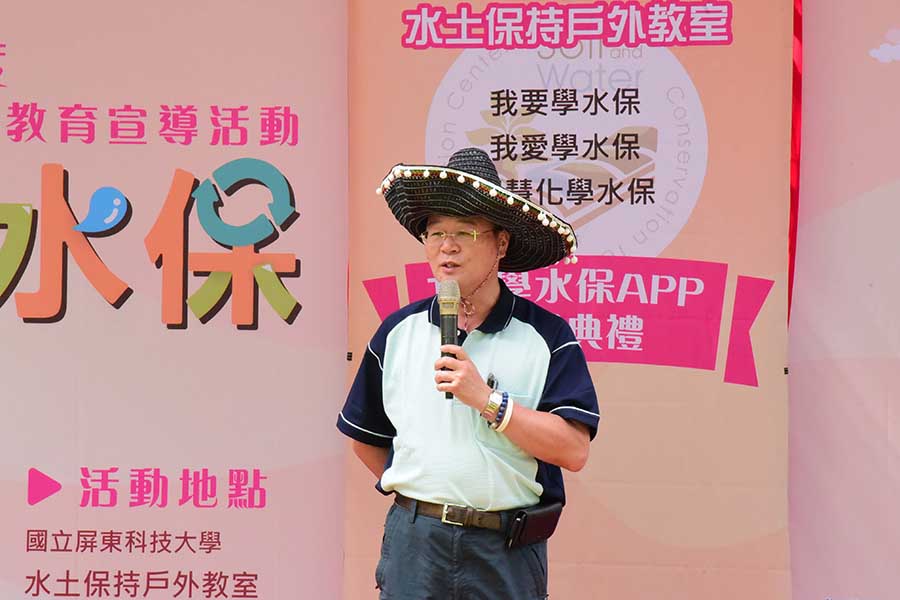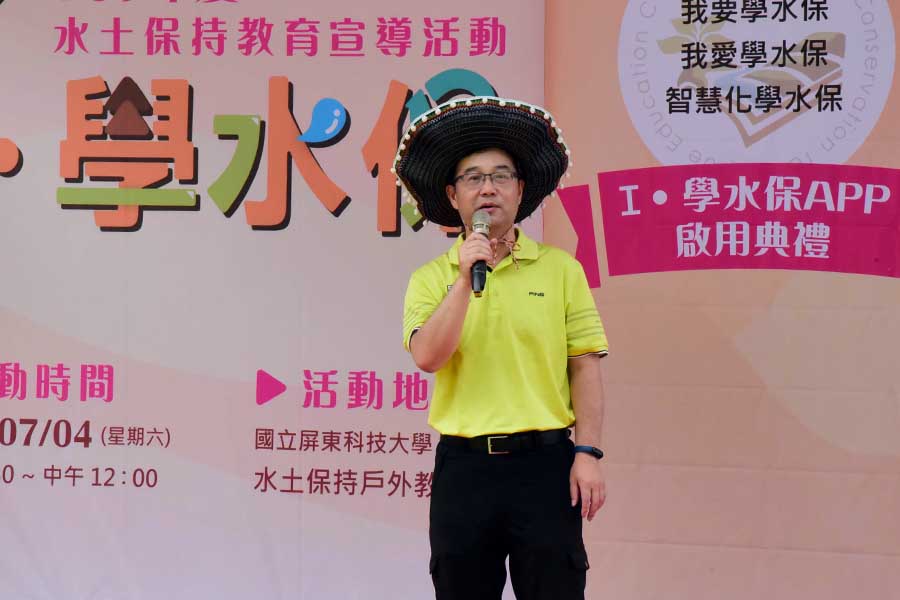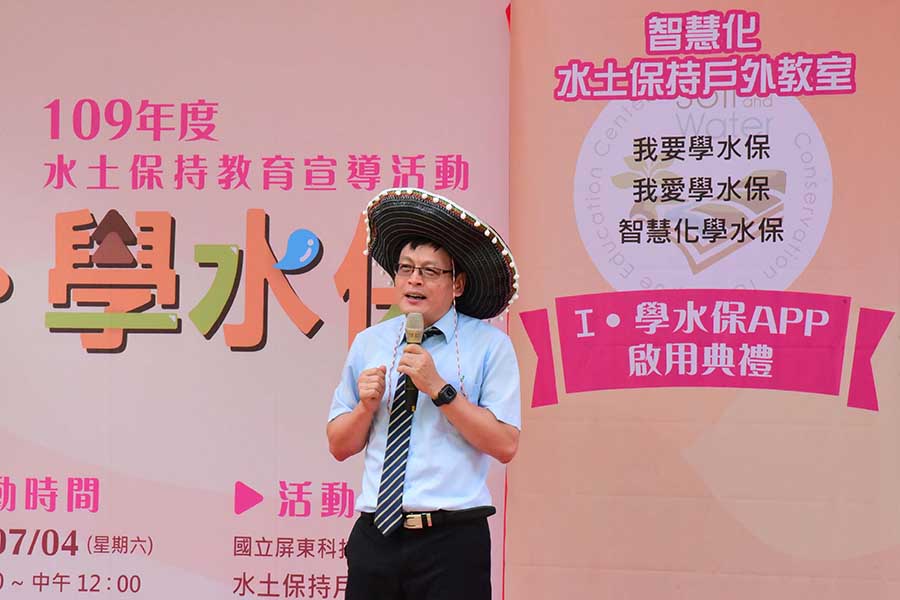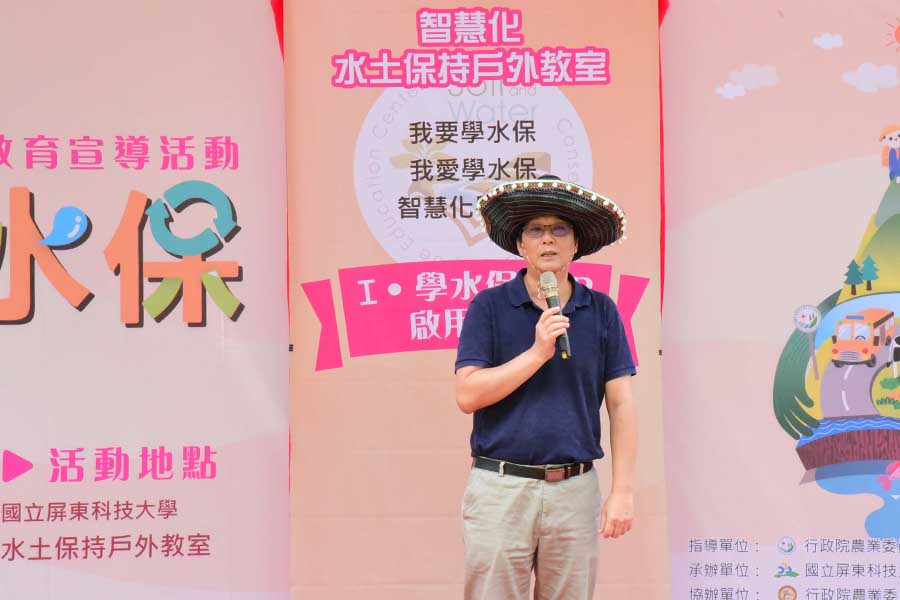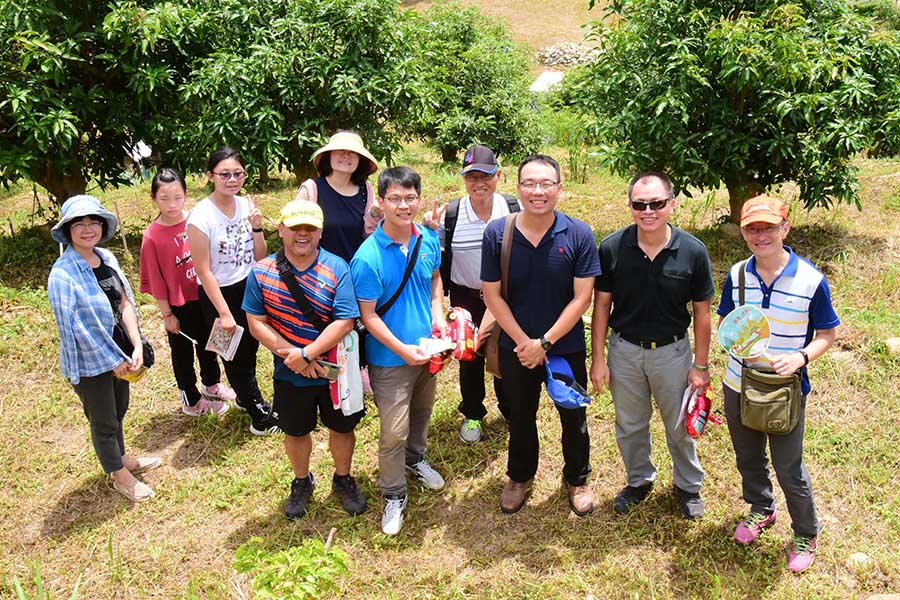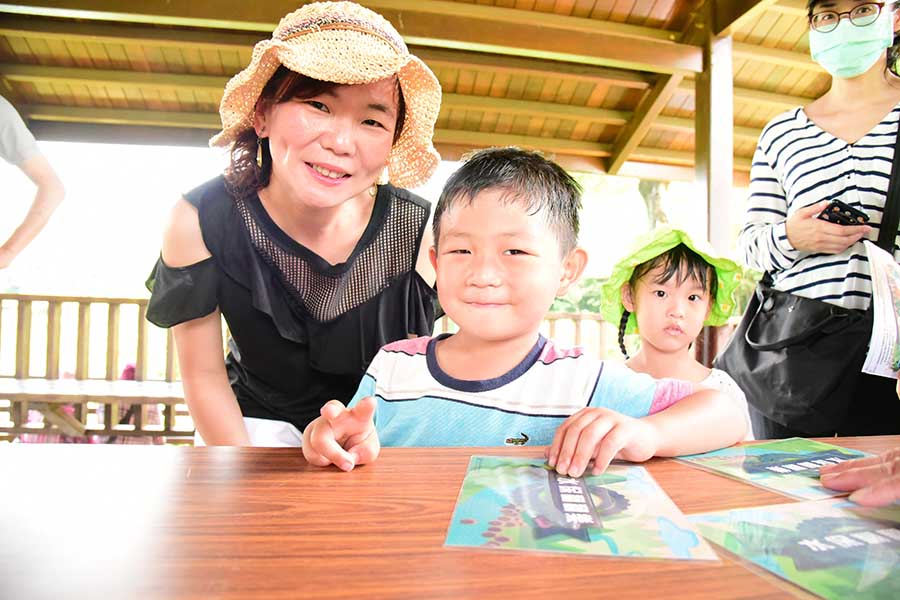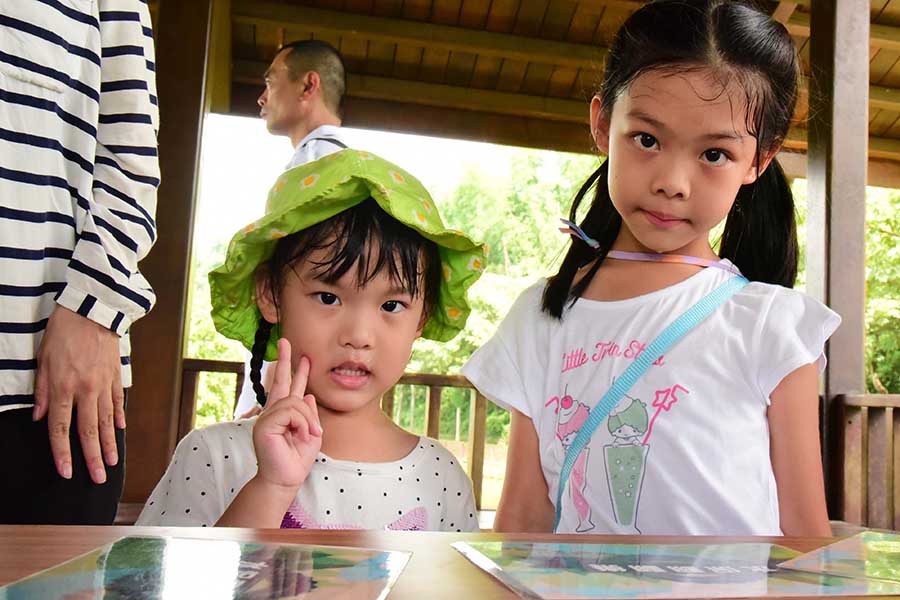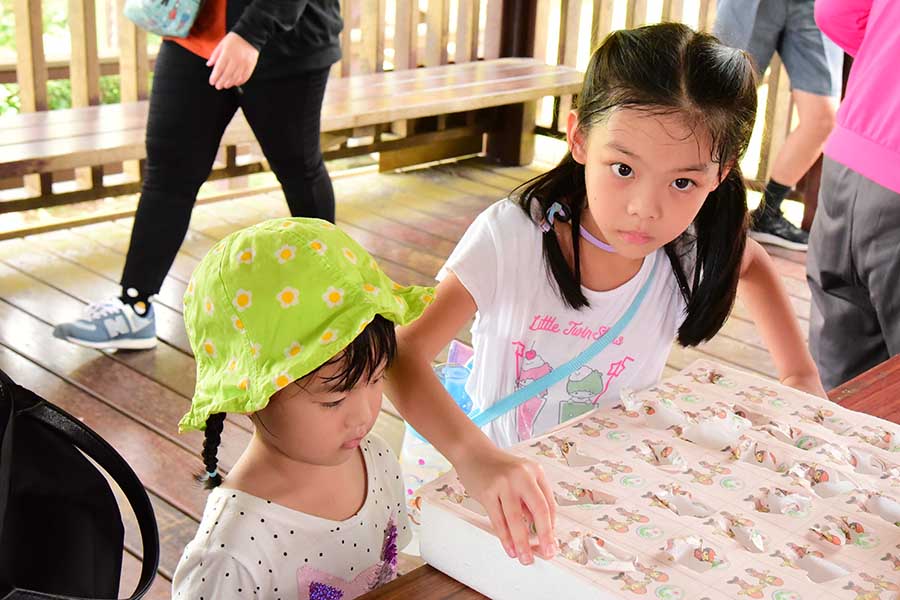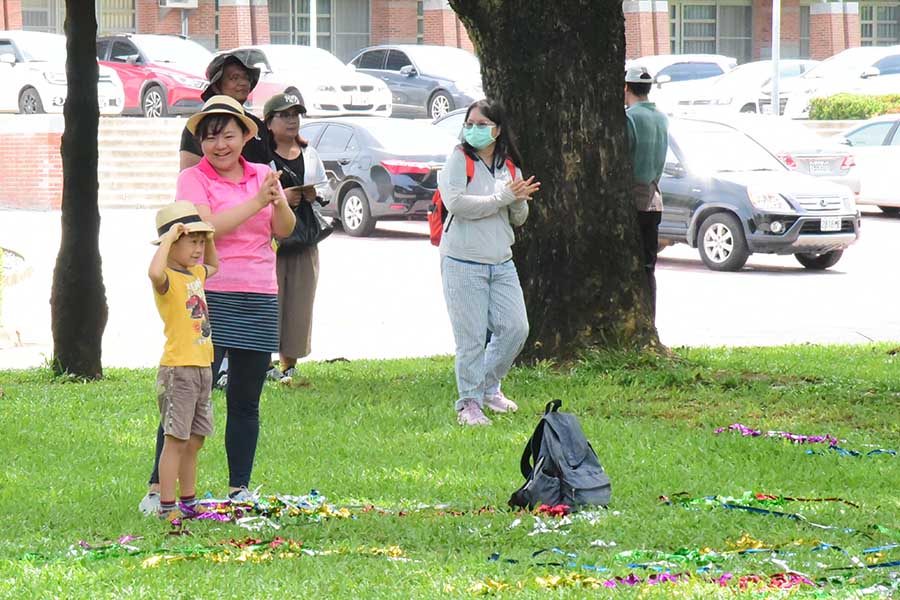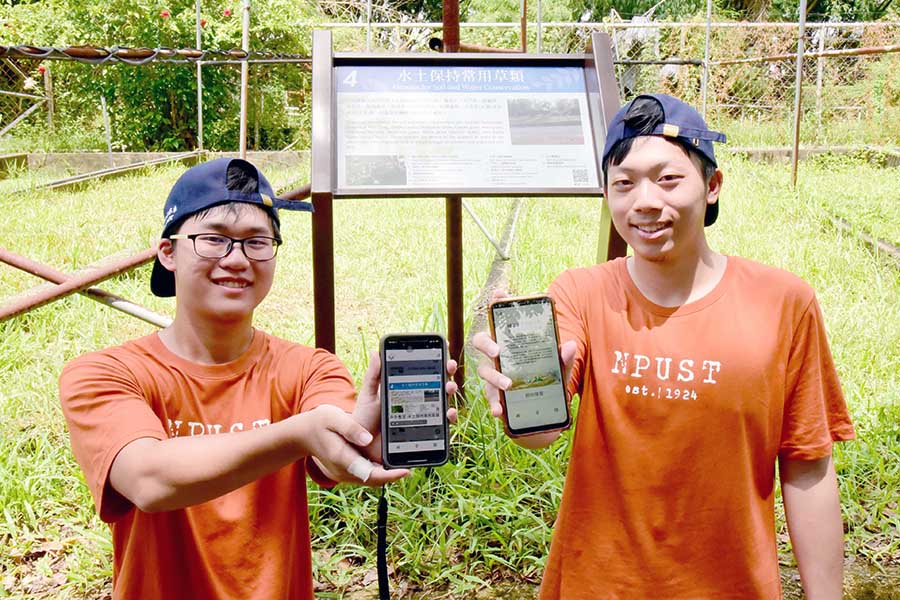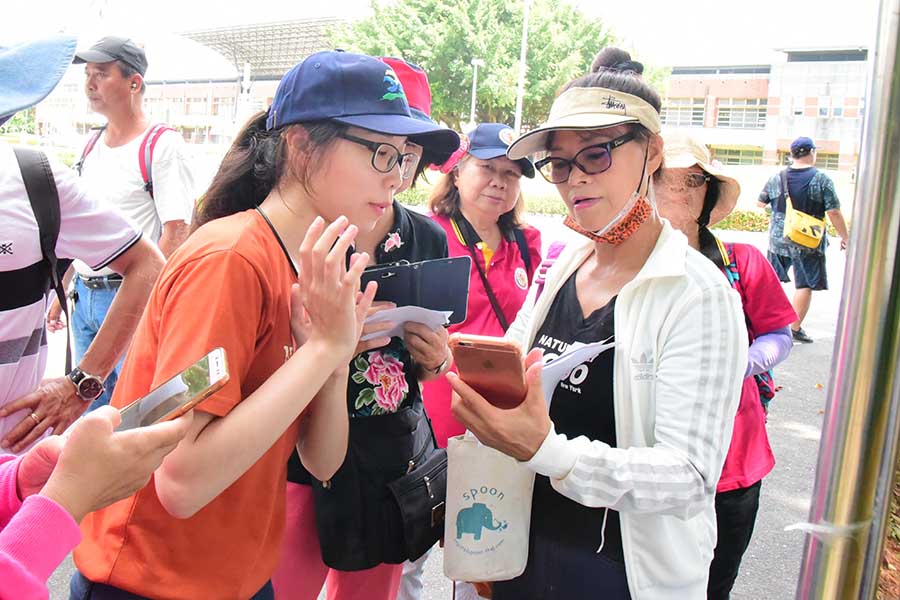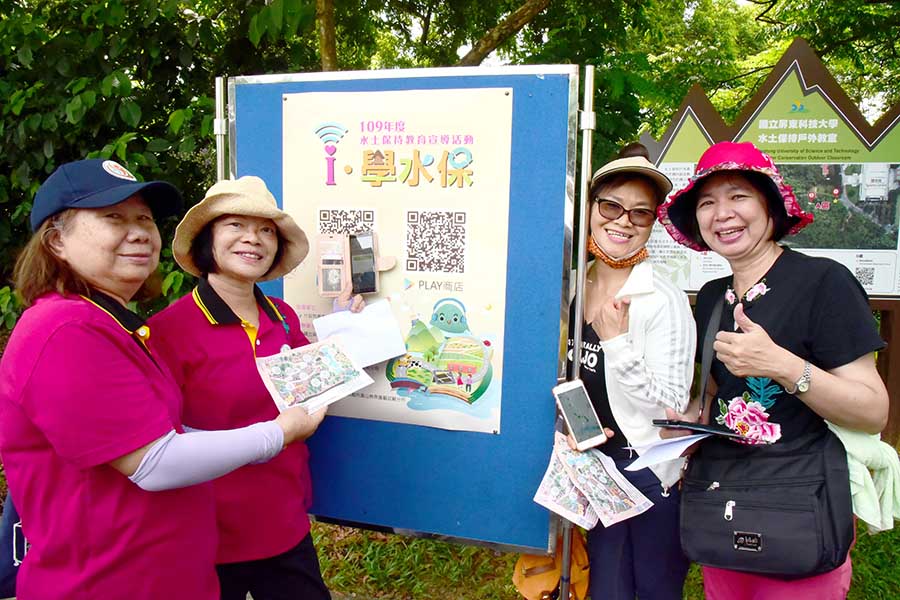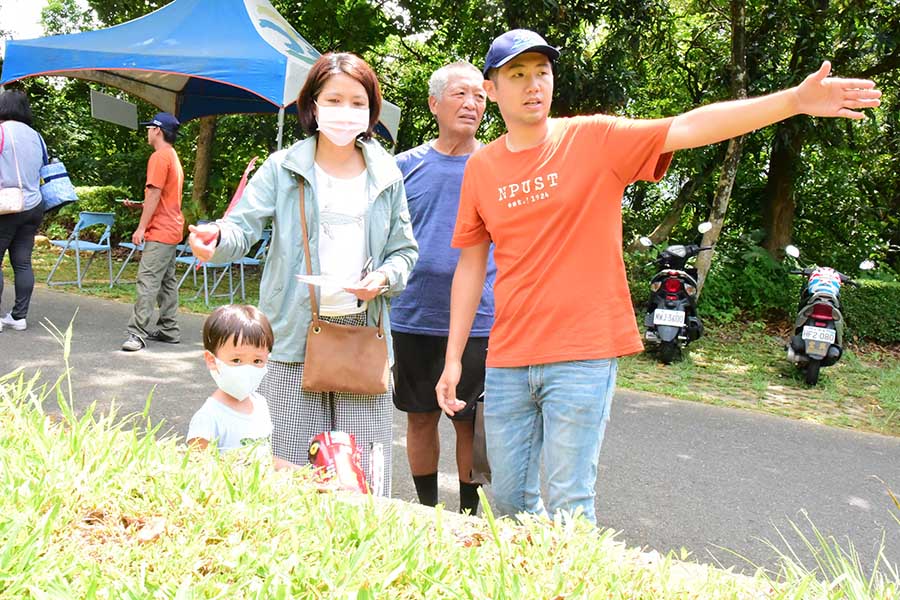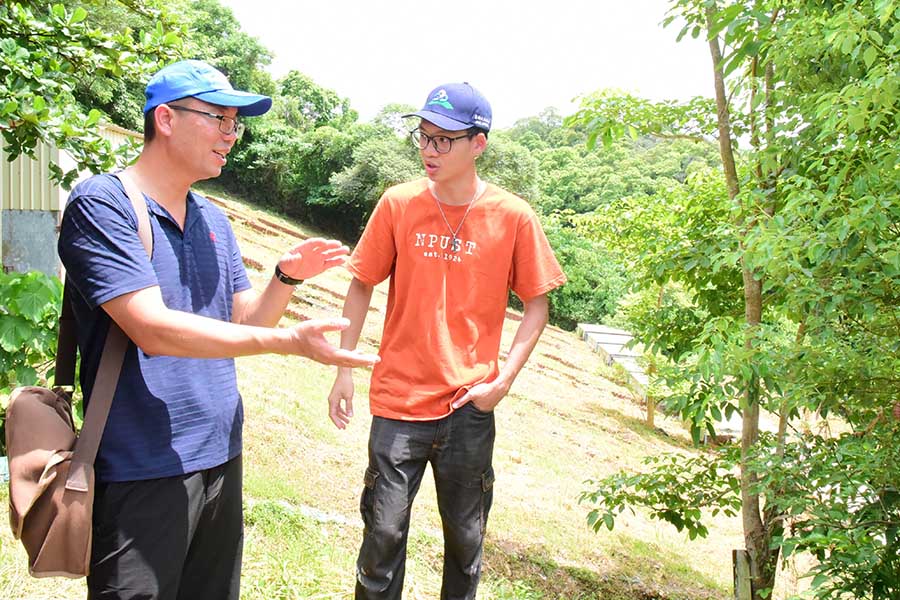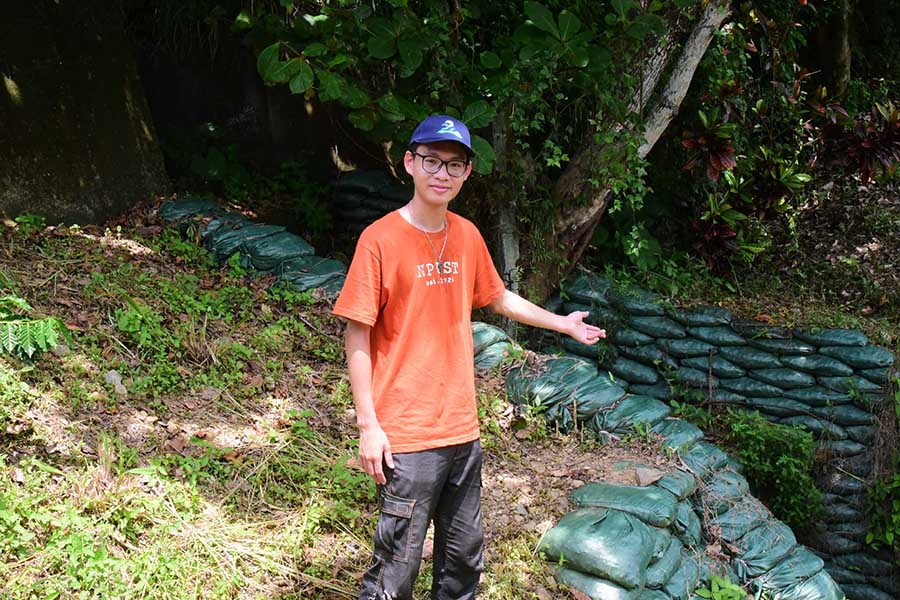Keeping in step with smart phone AI technology trends in Taiwan, the Department of Soil and Water Conservation at NPUST has been cooperating with the university’s College of Engineering and the Bureau of Soil and Water Conservation to develop the “i-Learning Soil and Water Conservation” APP. The software, which is a national first, is helping to usher in a new era of learning by integrating learning content with digital devices to create virtual outdoor classrooms.
To promote the new APP, on July 4th, the NPUST Department of Soil and Water Conservation and the Pingtung County Government put it center stage at this year’s (2020) annual Water and Soil Conservation Promotion and Education Activity.
The new program was made public at the prelude to the event which was held in the green space out front of the NPUST Department of Aquaculture. University and government representatives were in attendance including NPUST President Chang-Hsien Tai, Director of the Water Conservation Bureau, Zheng-Yang Li, Director of Pingtung County Water Resources Division, Guofeng Jiang, and Dean of the College of Engeineering, Ying-jie Li.
In his remarks NPUST President expressed that “developing both agriculture and soil and water conservation actually involves many conflicting ideas. So, for the professors at the Department of Soil and Water Conservation to be able to overcome challenges and develop a situation of symbiosis is an impressive feat. Today, with support from the Bureau of Soil and Water Conservation, a brand new APP has been developed –and I trust that the APP will grow in popularity and will allow many more people to learn about the importance of water conservation.”
The director of the Bureau of Soil and Water Conservation stated that “soil and water conservation is closely related to life. When developing sloped terrains for agriculture use or building roads, water and soil conservation must be considered to in order to maintain safety. With impacts related to the climate, the importance of these things increases. However, NPUST is using its experiences to make a difference; and also sharing its results with all its partners in Southeast Asia.”
The Soil and Water Conservation Bureau of the Council of Agriculture has been working to popularize soil and water conservation education in recent years so that ordinary people can easily understand the importance of soil and water conservation in their daily lives. As a result of their innovation, NPUST is now the only university in the country to have offer an “outdoor classroom” for teaching soil and water conservation.
Developed through a three-year cooperative effort, the “i-Learning Water Conservation” APP is designed to be enjoyable and allow users to lean wherever they go. The APP has built-in Chinese, English, and Thai language settings and uses multimedia based education with real demonstration that make it easy for people to get deep into soil and water conservation learning. When the phone’s location settings are on, users are automatically notified about nearby commentary points with on-demand instruction about planting and slope conservation methods. Easy-to-understand illustrated e-books and audio-visual media are also included to enhance the self-learning experience.
During the unveiling and related activities, entertaining games were used to promote concepts related to fire safety, landslide prevention work and several man-made disaster prevention initiatives. A number of related organizations in the area, such as the Kaohsiung City Water Resources Bureau, the Tainan Branch of the Soil and Water Conservation Bureau, and the Pingtung County Fire Bureau took part in the event, which attracted 300 people from the general public.
Water and soil conservation plays an important role in maintaining people’s wellbeing and developing the economy of the country. This is why it is important to help create widespread understandings of conservation methods. With the advent of 5G, AI technology will gradually find its way into an increasing number of applications –and with help from these powerful tools, people will be able to access greater amounts of high-quality information, and water and soil conservation and disaster prevention are expected to make significant advancements as a result.

